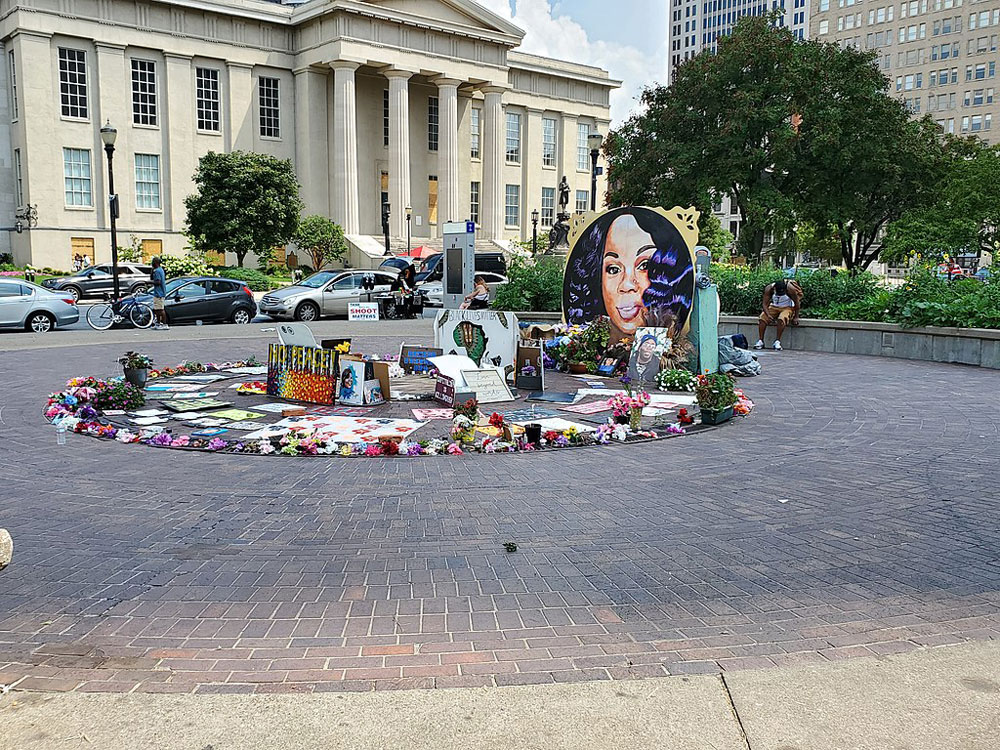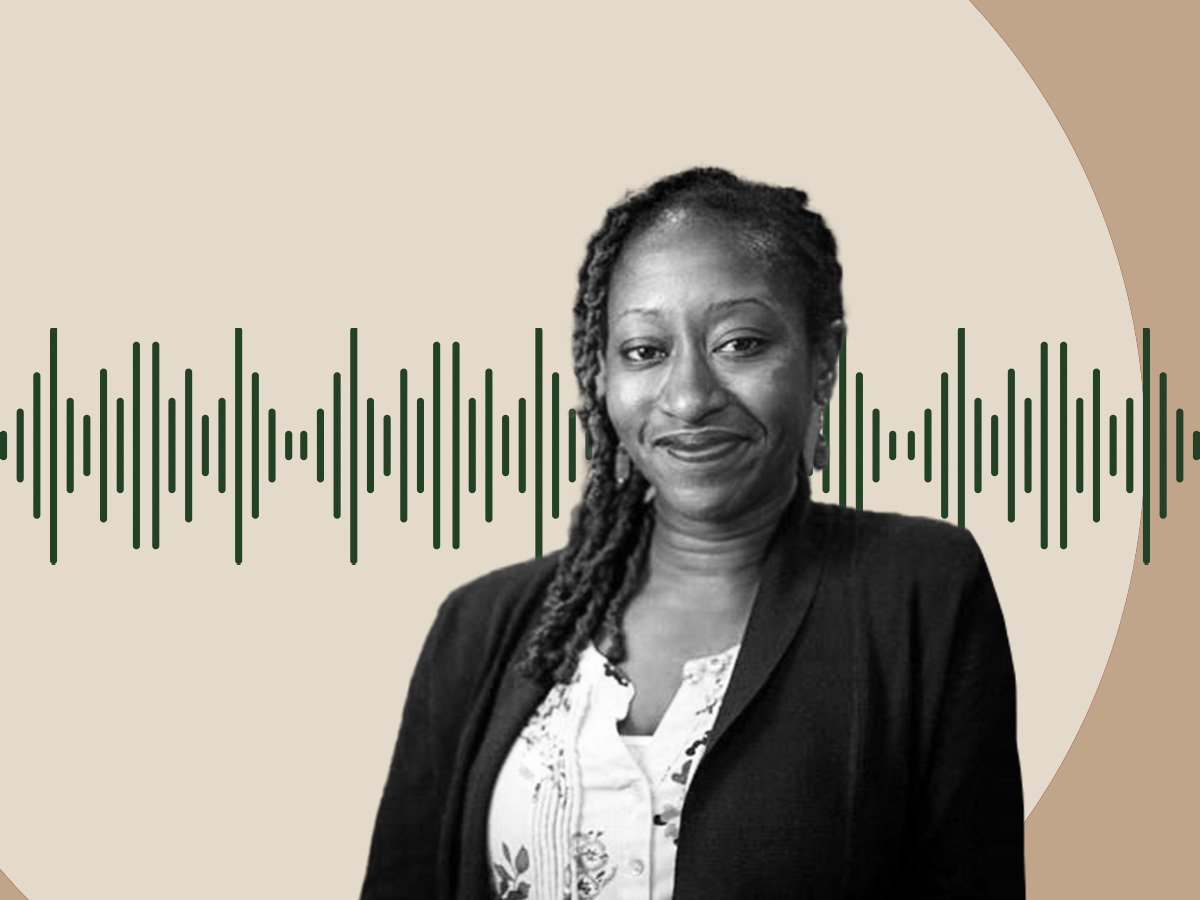
September 27, 2020; USA Today and Detroit Free Press
Last week, Kentucky state attorney general Daniel Cameron announced that a grand jury decided that no police officers would face murder or manslaughter charges in the death of Breonna Taylor. One officer, Brett Hankison, was charged with three counts of “wanton endangerment” for shots fired into a neighboring apartment, which carries a maximum penalty of five years per charge. Sergeant Jonathan Mattingly and Detective Myles Cosgrove face no charges. Bail for Hankison was set at a modest $15,000.
It should be noted that grand juries nearly always issue indictments when prosecutors ask for them—by some estimates, more than 99 percent of the time. So, it seems likely that the grand jury decision was one that the state attorney’s general office was seeking.
In a public statement issued after the grand jury’s ruling, Tamika Palmer, Taylor’s mother, said she “never had faith” in Cameron, who is Kentucky’s first-ever Black attorney general. She added, “I was reassured Wednesday of why I have no faith in the legal system, in the police, in the law.” Laws, she noted, “are not made to protect us Black and brown people.”
At the time of the March 13th raid, Taylor was a 26-year-old emergency room technician at the University of Louisville. Taylor was shot six times in her own apartment after police forcibly entered with a “no-knock” warrant issued for drug charges involving Taylor’s former boyfriend. No cash or drugs were found in the raid.
Faced with an evident lack of police accountability, protests have been widespread. USA Today reported on marches and rallies in many cities, including Portland, Oregon; Nashville; Chicago; New York City; Washington, DC; Raleigh; Kansas City; Boston; and Baltimore. Other smaller communities with demonstrations included the cities of Worcester, Massachusetts; Greenville, South Carolina; Poughkeepsie, New York; Akron, Ohio; Daytona Beach, Florida; and Bristol, Pennsylvania. And in Taylor’s hometown of Louisville, supporters held their 124th consecutive day of protests.
The protests have been largely peaceful, but arrests have occurred, nonetheless. Among those arrested in Louisville is Kentucky representative Attica Scott, the state’s only Black female legislator. Scott says she’s innocent and was peacefully seeking authorized sanctuary at a church prior to curfew.
Sign up for our free newsletters
Subscribe to NPQ's newsletters to have our top stories delivered directly to your inbox.
By signing up, you agree to our privacy policy and terms of use, and to receive messages from NPQ and our partners.
As for the police officers, legal experts claim that the lack of charges is justified by the fact that Taylor’s boyfriend Kenneth Walker had shot and wounded Mattingly in the leg. So, in this telling, the raid is a tragedy, but no crime. Walker was justified in shooting Mattingly because he shot in self-defense, as he had no idea the intruders were police, but the officers were also justified in shooting back in their own self-defense.
Then again, 32 shots were fired by the three Louisville police officers, compared to one shot by Walker. That’s an awful lot of self-defense, to put it mildly. Stunningly, Mattingly, who led the raid, wrote in an email to officers sent just one day before the grand jury decision that officers “did the legal, moral, and ethical thing that night.”
As Washington Post columnist Radley Balko notes, regardless of legal arguments, there is no question that Taylor’s death, minimally, reflected a “dereliction of duty” both by the police and the judge who authorized a no-knock warrant where such a warrant was clearly not justified. Nor can the raid be considered an aberration. It was not even the first botched raid for Hankison and Cosgrove. As Balko cites and Vice details, the two officers participated in another botched raid in 2018, in which shots were fired, traumatizing a 14-year-old girl, but in which fortunately no one was injured.
As for the officers, there is still an ongoing federal investigation, so federal civil rights charges may still be filed against them.
Taylor’s family also earlier this month entered into a civil settlement with the city of Louisville that provides $12 million for Taylor’s estate and also commits the city to a series of policing reforms, including requiring police commanders to vouch for all search warrant applications that are submitted to a judge. In June, Louisville’s city council voted to ban the use of no-knock warrants.
Beyond the specifics, the case once again illustrates how embedded structural racism is within US policing and criminal (in)justice.
In Detroit, protestors marched both for Taylor and for one of their own, Priscilla Slater, a Black woman who died while in custody of Harper Woods police this past June. Frank Joyce, a Detroit activist since the 1960s, attended that protest. Joyce notes that at the heart of the persistence of structural racism is the tendency to treat cases as that—as isolated from each other, rather than forming part of a larger whole. As James tells Joe Guillen of the Detroit Free Press, “There is something that is a component baked into what I call the white way of thinking that does not connect the dots and does not come to terms with how these practices carry over from generation to generation to generation. Part of what makes them difficult to change is misleading people about the difficulty and about how deeply entrenched these systems are and how far back they go.”—Steve Dubb













